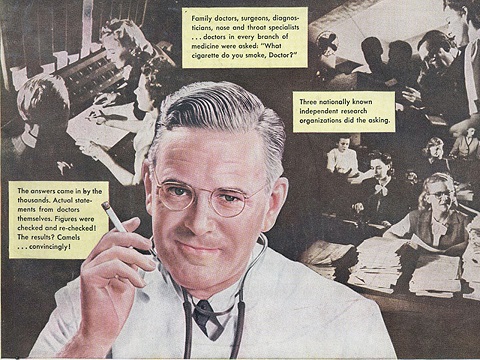TV commercials were always somewhat annoying, but never terrifying. They showed attractive young people at parties, drinking beer, gulping soft drinks, and singing the catchy ditties that separated one brand from another. The party-goers were obviously having fun; the women cleaning up kitchens not so much. There was no list of fatal and near-fatal side effects, even though soft drinks can make you fat and beer can make you drunk and fat. Constantly washing up the kitchen can turn any woman into a militant feminist, but that’s all it can do. None of these side effects is desirable, but they’re far from terminal. That was then. This is now, and that fun-loving, kitchen counter-scrubbing, beer and soft-drinking audience hasn’t been watching network television for decades. Why should they, when they can have news and entertainment in the palms of their hands and find take-out dinners at the nearest market?
Back then the most ad-responsive TV audience was between 18 and 39, and the networks simply ignored the fact that the legal drinking age for beer in many states was 21. Soft drinks could be sold by the liter. Even toddlers were allowed a sippy cup of ginger ale without causing parental anxiety. Of course, that was decades before the gerund parenting was devised to describe entire generations of Moms and Dads.
In bygone days, TV detergent ads merely promised not to shrink T-shirts; polishes of all sorts offered a gleaming house, and breakfast cereals could improve a net game. If none of those good results happened, there was always a competing commercial to see and another detergent, polish or cereal.to buy. Nobody died by trying a new product. Even if the new product was a headache tablet or a cold remedy, it wouldn’t “worsen heart failure, give you suicidal thoughts, risk tuberculosis, lymphoma or cause a rare brain infection”, and those are only the most horrible possibilities of the new drugs. Those old TV ads were boring, quite sexist, but essentially harmless. Though they always showed women folding the laundry and mopping the floor, that’s happily changed. Currently, the rare non-life-endangering TV commercials have men doing some of the cleaning and polishing. Having those antiquated but safe ads back would be welcome, if only slightly.
Now, that once ideally youthful TV audience is eligible for Medicare and whatever comes beyond. The commercials made for them assume the viewers are not only old but chronically ill. Worse, their current medications don’t help them. The TV ads are for fantastic new drugs that might be effective, but only if the potential patients are willing to risk their lives to find out. That’s why the lists of side effects are longer than the ads themselves; often even longer than the programs being interrupted. There’s an American law that makes rattling off side effects mandatory, but that’s the single control we have.
The United States is one of only two countries permitting prescription drugs to be advertised on television directly to consumers. New Zealand is the other. Ask your doctor if Fatala is right for you is a catch phrase Americans and New Zealanders hear three times every half hour, especially if they listen to the late night news. That doesn’t happen anywhere else.
And sadly, that phrase is often delivered by actors who studied at The Royal Academy of Dramatic Arts or at the renowned Yale Drama Department; actors who thought they’d be fine in Hamlet; by now well into in their careers playing Ophelia or Hamlet himself; possibly starring in a revival of Cat on a Hot Tin Roof. Now these talented people are asking direct questions of the home audience; questions that some people would hesitate to mention to a gastroenterologist. Instead of parties, the ads are showing actors racing to the plumbing; both private and public. Annoying doesn’t begin to describe hearing highly personal questions on your own TV screen, especially if you’ve invited guests over to see the tennis finals or the Oscars. A revised 1960 commercial showing a dad sweeping the floor would be welcomed wholeheartedly by Americans and New Zealanders, the only people who have an acronym for Directly To Consumer. That’s DTC, and there ought to be a law against it. There might have been, but the present outlook favors Big Pharma. Physicians hate to be asked by their patients if Fatala would be right for them. Exasperated often enough, they might actually say Take two aspirin and call me in the morning.






Be First to Comment